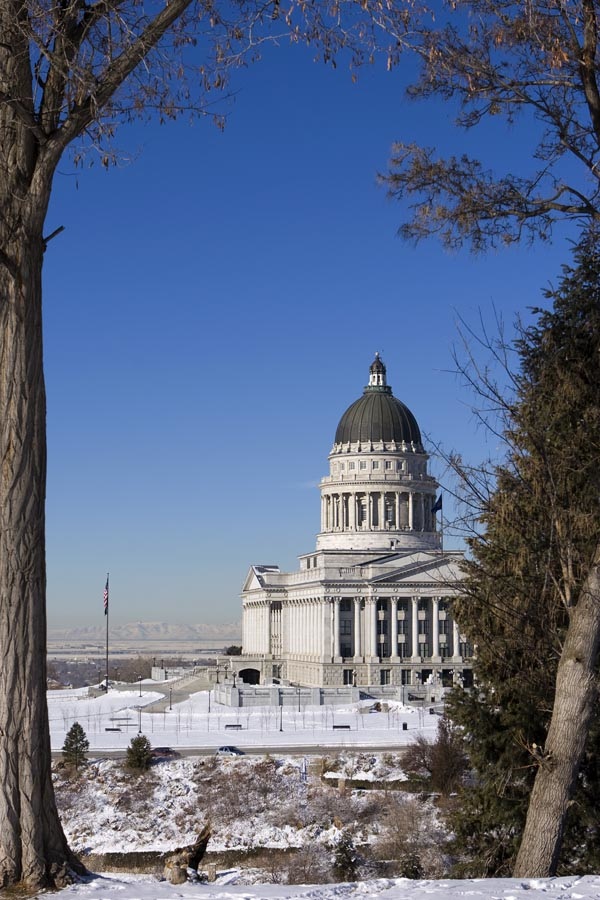| It was early October 1988, and Norm Bangerter and I were knee-to-knee in the cramped quarters of a small twin-engine plane winging its way over the spectacular red and rocky landscape of Southern Utah, on our way back to Salt Lake City after a long day of campaigning. He was the embattled incumbent governor of a state in economic turmoil, 10 points behind Democratic challenger Ted Wilson in the polls and fighting a third-party challenge from Merrill Cook, who had broken from Republican ranks. I was a young reporter assigned to his campaign, and I was about to ask him a question that, in retrospect, revealed a lot about him. “What other politician inspires you politically?” “Harry Truman.” When I reminded him that Truman was a Democrat, he said he wouldn’t have voted for him. When Bangerter came of age, he cast his first vote |
| | for Dwight D. Eisenhower. Political philosophy had nothing to do with his regard for Truman, who, Bangerter explained, “told it like it was.” “I don’t know if he was the most effective president, but he didn’t try to please anybody.” And, what mattered most for the ’88 race, “He came from behind to win in 1948, and he was battling against a third-party candidate.” In my journal that day, I wrote that I felt as if I had spent the day with an uncle. Bangerter, who died this week, often gave the impression of someone who was brusque or a bit grumpy. But I saw the other side of him that day as he took me to the house he owned in St. George, introduced me to his daughter and, as I stood with the pilot of our plane outside, got his hair cut at a downtown barber shop. I recorded that I felt he was an honest man, but I didn’t think he would be re-elected. I was, of course, wrong about that last assessment. To understand Bangerter’s two terms as governor, one must first understand the times, which seem as strange as a foreign country to today’s Utahns. The roaring ‘80s didn’t roar here. The official unemployment rate hovered between 10 percent and 5 percent from 1983 to 1990, and more people moved out than in. Only a high birthrate kept the population growing. During his first term, an unusually wet weather pattern raised the level of the Great Salt Lake to the point where I-80 and several homes were threatened. He approved construction of $60 million pumps to move excess water into the West Desert and Bonneville Salt Flats. They were finished just in time for a dry spell that continues today. He pushed through a major tax increase for education, which led to a revolt by anti-tax conservatives and Cook’s breakaway third-party challenge. Talk radio was relentless in its criticism of him and his policies. In addition, Democrats were more than just token opposition. Bangerter was the first Republican governor in 20 years, and it was both easy and logical to see the office reverting back to a Democrat in ’88. In the face of all this, Bangerter wasn’t above dark humor. During that race, I often heard him joke that, “I may have picked a bad time to be governor, but I picked a good time to be out of business.” But tough times bring leadership into high relief, and Bangerter rose to the challenge. Unlike more recent governors, he was not afraid to spend his political capital. But then, he didn’t really have any. He made decisions that upset his party and whatever political base he had, but decisions were needed, and he didn’t shy away from the ones he felt were right. And the thing is, he didn’t have to be where he was. Bangerter was a successful developer who easily could have enjoyed a more carefree life. But as he told me on the plane that day, “If I don’t do it, someone else will take charge and do everything wrong.” What I learned then, and from years of covering him in office and fielding his occasional friendly phone calls after he returned to civilian life, taught a lot about doing right things. He won, but winning wasn’t his only objective. It is appropriate that Bangerter’s lasting physical legacy is a highway that runs through the Salt Lake metro area and bears his name. Like his leadership, it doesn’t always run smoothly, but in the end it gets you where you want to go. |


 RSS Feed
RSS Feed

